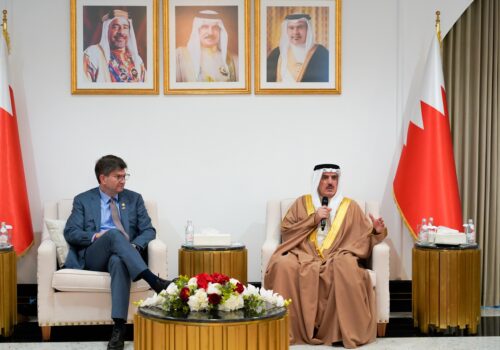What’s your perspective on how technology reshapes conflicts in our modern world? The intersection of warfare and cyber operations, especially between nations like Israel and Iran, is a fascinating and complex topic. The ongoing Israel-Iran conflict has demonstrated notable cyber operations that range from hacktivism to state-sponsored attacks. While it’s easy to get swept up in the hype around these digital skirmishes, understanding their actual impact reveals a different story.

This image is property of www.atlanticcouncil.org.
The Cyber Landscape: A New Frontier in Warfare
The introduction of cyber warfare in modern conflicts has transformed how nations engage with each other. This new battleground is characterized by its low entry barriers and the potential to reach critical infrastructure with minimal physical risk. As tensions between Israel and Iran escalated, both nations turned to cyber operations, adding a unique flavor to their long-standing rivalry.
Hacktivism: The Digital Vigilantes
Hacktivism adds an intriguing layer to the discourse surrounding cyber warfare. Groups of individuals, often motivated by political agendas, target institutions with the aim of making a statement. Throughout the Israel-Iran conflict, various politically motivated hacktivists took to their digital weapons, launching low-level attacks against key state institutions.
Despite the public perception of these operations being impactful, their actual effects tended to be more symbolic. While they might raise awareness about an issue or expose vulnerabilities, they largely lacked the ability to effect substantial change in the political landscape. Most often, the repercussions of these hacktivist endeavors remained cognitive, as they did not coerce either side into presenting concessions or altering their policies.
State-Sponsored Cyber Attacks: A Show of Force
In contrast to hacktivism, state-sponsored cyber attacks represent a more organized and strategic effort by nations. During this ongoing conflict, Israel has carried out targeted hacks against Iranian institutions, including financial sectors. The intent behind such operations typically revolves around signaling power rather than gaining a tangible military advantage.
These attacks illustrate a phenomenon where cyber operations can be used more for psychological influence than for physical damage. For example, while disrupting Iranian financial institutions may seem crippling, the impact of such actions has proven to be fleeting in the grand scheme of warfare. Without significant repercussions on military fronts, these operations do not provide the decisive technological edge often expected from them.
Information Control: The Battle Beyond Cyber Warfare
While hacktivism and state-sponsored cyber operations receive plenty of attention, another crucial aspect that plays a significant role in the Israel-Iran conflict is information control. Both nations have utilized tactics to restrict news coverage domestically and internationally, impacting the narrative and perception of their conflicts.
Iran’s Internet Blackout
In response to escalating tensions, Iran has imposed near-total internet blackouts during critical moments. By restricting internet access, the Iranian government aimed to control both information flow and civil unrest. This tactic may seem effective at first glance, but it primarily disrupts the lives of civilians rather than altering military outcomes. As a result, citizens are left in the dark, suffering the consequences while the intended military or political targets remain largely unaffected.
Israel’s Media Restrictions
On the other side, Israel also imposed media restrictions, aiming to limit the narrative portrayed in foreign media coverage. By controlling information, Israel sought to maintain an upper hand in shaping public perception of its actions and strategies. However, while the media controls may serve short-term strategic goals, their effectiveness in achieving long-lasting military benefits remains questionable.

This image is property of www.atlanticcouncil.org.
The Role of Spyware: Intelligence Gathering with Minimal Impact
In the realm of cyber operations, spyware plays a significant role, particularly from the Israeli front regarding their operations against Iran. Allegations suggest that Israeli firms have deployed spyware against Iranian targets, intending to gather intelligence and monitor actions. But what does this really achieve?
While gathering intelligence can be crucial for military strategies, the actual advantage gained through such operations tends to be less impactful than initially perceived. Yes, intelligence may aid in planning and decision-making, but it doesn’t equate to direct military success. The conflict has demonstrated that despite advancements in cyber capabilities, they often culminate in minimal strategic value when it comes to actual combat scenarios.
Summary of Cyber Operations Impact
To better understand the role of various cyber operations in the conflict, let’s take a look at the table below. It summarizes the primary cyber activities and their impacts:
| Cyber Activity | Description | Impact Level | Notes |
|---|---|---|---|
| Hacktivism | Low-level operations targeting state institutions | Cognitive Impact | No significant coercive change |
| State-sponsored attacks | Strategic cyber attacks on financial institutions | Symbolic Power | Minimal military effect |
| Internet Blackouts | Control information flow within Iran | Disruption to civilians | No long-term military advantage |
| Media Restrictions | Limit reporting in Israel’s conflict | Temporary narrative control | Short-lived effectiveness |
| Spyware Operations | Intelligence gathering on Iranian activities | Limited military advantage | Primarily informative, not decisive |
The Takeaway: Understanding Cyber Operations in Warfare
As you navigate the complexities of the Israel-Iran conflict, it’s essential to recognize that cyber operations do not represent some magical solution to warfare. Instead, these digital confrontations contribute to shaping the information environment and strategic perceptions. The data shows that their impact has largely remained limited and more incremental.
The Future of Cyber Warfare
Looking ahead, cyber operations are expected to evolve and focus on specific areas, particularly intelligence gathering and threats to critical infrastructure. With ongoing developments in technology and the continuous escalation of international conflicts, keeping a historical context in mind becomes crucial. Overestimating the significance of cyber operations without understanding their limitations might lead to misguided strategies.
Even though the advancement in cyber capabilities may suggest a transformative shift on how wars are fought, the reality often depicts that these virtual battles lack the decisive outcomes that traditional warfare has produced. Understanding this nuance will provide you with a clearer perspective on the role of technology in modern conflict.

This image is property of www.atlanticcouncil.org.
Conclusion: Reflecting on Cyber Warfare’s Role
The Israel-Iran conflict has illustrated the complex interplay between traditional warfare and cyber activities. While the digital realm has provided creative avenues for both sides to exert influence, the ultimate outcomes remain tied to physical realities and the human element of conflict. As technology continues to advance, understanding its limitations can help you gain deeper insights into how warfare evolves and the role digital strategies play.
Embracing a holistic perspective on warfare can empower you to appreciate the multifaceted nature of conflicts like the one between Israel and Iran. Through examining both the advances and limitations of cyber capabilities, you’ll be better prepared to understand future conflicts and the evolving role these technologies are likely to play.